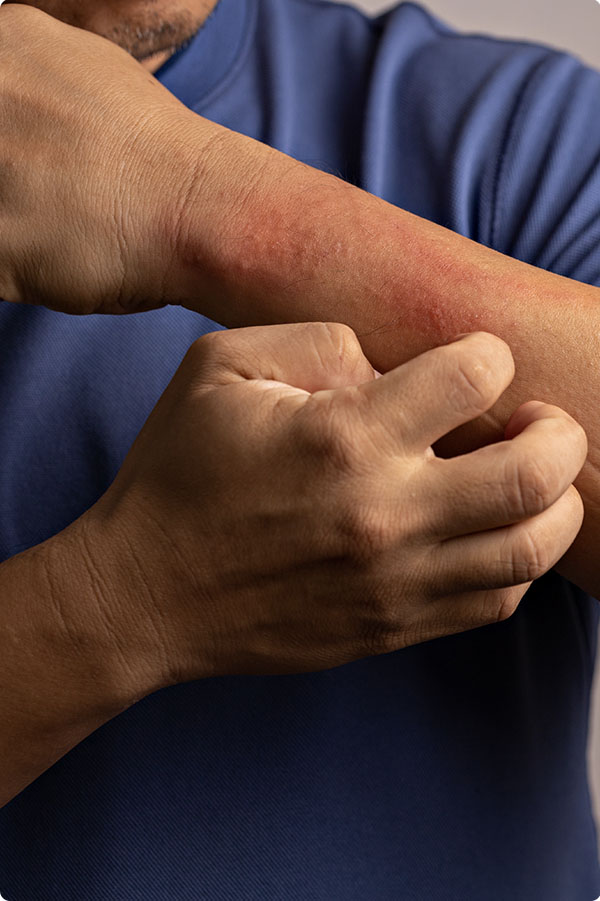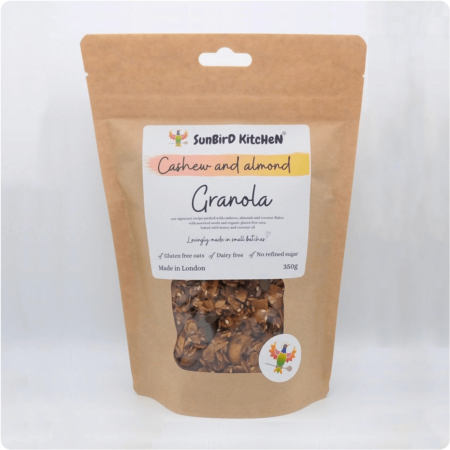
Eczema
Written by Melanie Dixon

Common Symptoms
Psoriasis is a whole-body inflammatory condition that is so much more than skin deep. People with psoriasis often experience symptoms including:
- Skin plaques that can be large or small, smooth or scaly, red or white, depending on which type of psoriasis you have
- Food sensitivities
- Other auto-immune conditions such as Coeliac disease, thyroid auto-immunity and rheumatoid arthritis
- Diabetes and heart disease
- Depression
Common Causes
Conventional medicine often views psoriasis as just a skin condition, but psoriasis is actually an auto-immune condition, meaning that part of the body’s own immune system becomes confused and attacks normal tissues in the body.
- Poor Digestion & Leaky Gut undigested protein can create toxins that get into the body through the gut lining, causing the immune system to react
- Yeast Overgrowth a yeast infection in the gut called Candida is quite common in those with psoriasis
- Nutritional Deficiencies are seen in psoriasis, particularly of omega-3 fats (found in fish and some nuts and seeds), vitamin D, B12, selenium and fibre
Certain food sensitivities are also linked to psoriasis, especially gluten, nightshades (red peppers, aubergine and tomatoes) and alcohol. Stress, sunburn and anything that affects the immune system can also cause flare-ups.
Eczema
Eczema is an inflammatory condition of the skin that happens when the skin barrier is not working as well as it should be. Your skin is an outward reflection of your inner health, and eczema is a sign that your body is inflamed. Eczema is often a result of problems with the immune system that may be linked to issues with both your gut microbes and the health of your gut lining.
Common Symptoms
People with eczema often experience the following symptoms:
- Dry, itchy skin
- Red rashes or crusty skin
- Scaly, leathery patches of skin
- Food intolerances
- Asthma or allergic rhinitis
Common Causes
- Leaky Gut is a condition that allows undigested food particles and toxins to pass into your bloodstream, causing inflammation in the body
- Dysbiosis when your normal gut microbes get out of balance, the ‘bad’ bugs and yeasts can overgrow, causing inflammation in the gut
- Medications some medications are necessary, but overuse of antibiotics, aspirin, acid-blockers like Gaviscon, the contraceptive pill and ibuprofen cause upset your gut health
Overgrowths in the gut caused by a diet that is high in sugar, refined carbohydrates (like pizza, pasta and bread), and low in fibre can also trigger eczema.
Common Signs
Without even noticing, it’s completely normal to lose between 50-100 strands of hair every day, especially when brushing or washing your hair. If you’re worried that you’re losing more hair than this, it’s advisable to see your GP. Common signs that your hair loss isn’t normal are:
- Gradual thinning on top of the head
- Hair that’s easy to pull out or comes out in clumps
- Bald patches
- Loss of body hair
- Itching or burning of the scalp
Common Causes
- Tight hairstyles and chemical treatments
- Age
- Family history
- Pregnancy
- Stress or trauma
- Sudden weight loss
- Nutrient deficiencies
- Health conditions, after an illness or cancer
- Medications, chemotherapy or radiation treatment
Top Tips for Managing Eczema






